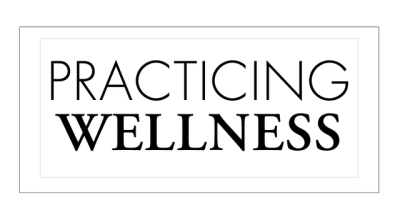
With each passing year, it seems life becomes more complex. The singular obligation many of us held so long ago has transformed into a multitude of daily tasks — juggling innumerable roles at work, never-ending parenting duties, responsibilities in our personal relationships, accountability regarding extracurricular activities, attempts to expand our intellectual and educational development, myriad social obligations, and the list goes on and on. These commitments come at us at a seemingly relentless pace. It is no wonder, then, that the increasing complexity of the world can lead to feeling constantly overwhelmed.
SYMPTOMS OF OVERWHELM
Harvard professors Robert Kegan and Lisa Lahey have discussed how the complexity of modern life seems to have surpassed the complexity of our minds or our ability to effectively cope with everything coming our way.1 Attorneys, notoriously high achievers and a highly intelligent group, may believe that knowledge and success make them immune to becoming overwhelmed; however, Kegan and Lahey indicate that in today’s multifaceted world, succumbing to overwhelm has nothing to do with one’s intelligence, but rather how we make sense of the world and operate in it.2
Many of the lawyers I encounter (and, if I’m being honest, myself as well) simply adjust to the overwhelm by putting in longer hours — getting up an hour earlier to cross one more thing off the to-do list or staying up later to sift through emails and get a jump start on the following day. But is this really effective?
A 2020 study by the American Psychological Association indicated that 60% of participants felt overwhelmed by daily life.3 Overwhelm can be described as “an emotional state in which you are struggling to cope with or deal with your current situation” and is “characterized by feelings of being inundated, swamped, overloaded, overpowered, [and] defeated.”4
The cognitive impacts of overwhelm are numerous and can include mental slowness, forgetfulness, confusion, difficulty concentrating, and an impaired ability to solve problems.5 It’s no surprise, then, that these difficulties could impact an attorney’s work performance. With some studies relating anywhere from 40-70% of malpractice claims to substance use, depression, or both, the need to learn how to best cope with feeling overwhelmed is high.6 If you’re struggling with restlessness, a lost sense of purpose, feelings of exhaustion, or procrastination, you’re not alone.7
Let’s explore ways to overcome overwhelm.
PINPOINT THE SOURCE
Ask yourself: what is one (or possibly two) things that create the greatest amount of stress in your life? Though you may not be able to alleviate it, understanding what contributes to overwhelm may help tremendously. Is it an unfinished project that could be wrapped up by focusing on it more? An uncomfortable conversation that needs to be had? A quickly approaching deadline for which an extension can be requested? Once the root cause is determined, solving the problem becomes more manageable8 and can help you focus your energy on eliminating your largest source of stress.
BOUNDARIES,BOUNDARIES, BOUNDARIES!
Your time is precious. Work will always be there. Investing more time into work duties does not always result in a corresponding decrease in the number of tasks to perform. Setting work boundaries can look different from person to person, so it’s important to find out what best suits you.
Perhaps it’s setting aside a certain period of time to work on a task, setting a timer to let you know when that period has expired, and coming to a hard stop when time is up. Maybe it’s leaving the office at a certain time every day or, if you’re working remotely, logging off at that same time.
Most importantly, say no! Hard work and long hours are common practices within the field of law, but how long is this truly sustainable? Taking on too many tasks can result in massive overwhelm and negative consequences to mental, emotional, and physical health.9
SCHEDULE TIME FOR SELF-CARE
Many attorneys are beginning to realize that setting aside time to focus on one’s own well-being actually increases productivity and output.10 An emotionally healthy attorney is a competent attorney able to provide better client service than a lawyer who feels overwhelmed and burnt out.11
What does self-care look like for you? A daily lunchtime walk, a weekly yoga class, setting aside time to read for pleasure, starting each morning with a crossword puzzle, a monthly dinner with friends — investing in one’s self-care is creating a life from which you don’t need to escape. If taking care of your emotional, mental, and physical self is difficult or a foreign concept to you, schedule time for it in your calendar and begin making it a priority.
CONCLUSION
We all experience overwhelm at times in our personal or professional lives. This article focuses on feeling chronically overloaded and what, specifically, can help to reduce this feeling. When the work itself isn’t changing, we can look at how we view our work and how we manage our responsibilities. If pinpointing the source, setting boundaries, and scheduling time for self-care don’t seem to help, contact the SBM Lawyers and Judges Assistance Program to learn what can be done to overcome overwhelm.